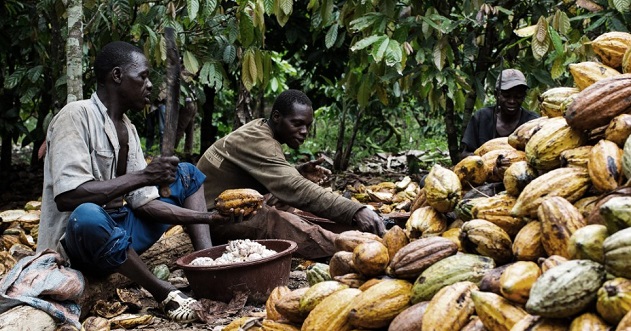Business
Buhari signs 2010 International Cocoa Agreement

President Muhammadu Buhari on Monday signed an Instrument of Accession to the International Cocoa Agreement (ICA), 2010.
The pact was the seventh ICA adopted at the United Nations Cocoa Conference in 2010 following the contribution of ICA, 1972, 1975, 1980, 1986, 1993 and ICA, 2001 to the development of the world cocoa economy.
The ICA, 2010 was administered by the International Cocoa Organization, which was established by the ICA, 1972 and functions through the International Cocoa Council, the highest authority of the organization.
A statement signed by the Senior Special Assistant on Media and Publicity to the President, Garba Shehu, said that decision followed the approval by the Federal Executive Council (FEC) for Nigeria to accede to the agreement.
Following the execution of the instrument of accession, Nigeria undertakes “faithfully to abide by all the stipulations therein contained” in the agreement, according to the statement.
“Among other benefits, the agreement is expected to strengthen cooperation between exporting and importing member countries; improve their cocoa economies through active and better focused project development and strategies for capacity-building,” the statement read.
Read Also: CBN directs banks to give loans to agric, manufacturing firms at 9%
It is also expected to build on the successes of the 2001 Agreement by “implementing measures leading to an increase in the income of cocoa farmers and by supporting cocoa producers in improving the functioning of their cocoa economies.”
The statement added that the 2010 agreement would also “deliver cocoa of better quality, take effective account of food-safety issues and help establish social, economic and environmental sustainability, so that farmers are rewarded for producing cocoa that meets ethical and environmental considerations.”
According to the United Nations Conference on Trade and Development, the ICA, 2010 was agreed with a view to strengthening the global cocoa sector, supporting its sustainable development and increasing the benefits to all stakeholders.
It highlighted eleven objectives as rationales for the pact, they comprise to; promote international cooperation in the world cocoa economy; provide an appropriate framework for discussion on all cocoa matters among governments, and with the private sector; contribute to the strengthening of the national cocoa economies of Member countries; obtain fair prices leading to equitable economic returns to both producers and consumers in the cocoa value chain.
The objectives also include to; promote a sustainable cocoa economy; encourage research and the implementation of its findings; promote transparency in the world cocoa economy, and in particular in the cocoa trade, as well as to promote the elimination of trade barriers; promote and to encourage; consumption of chocolate and cocoa-based products in order to increase demand for cocoa.
Others include to; encourage Members to promote cocoa quality and to develop appropriate food safety procedures in the cocoa sector; encourage Members to develop and implement strategies to enhance the capacity of local communities and small-scale farmers to benefit from cocoa production and thereby contribute to poverty alleviation; facilitate the availability of information on financial tools and services that can assist cocoa producers, including access to credit and approaches to managing risk.
Currently, Nigeria rely on crude oil as its major source of revenue, accounting for about 70 percent of its total revenue and over 90 percent for its export earnings. The nation’s economy recorded its worst decline since 1987 in 2016 on the back of drop in the prices of crude oil in the international market in 2014.
Nigeria recorded five consecutive negative Gross Domestic Product growth rates from -0.67 percent in Q1 2016 to -0.91 percent in Q1 2017. It officially emerged from recession in Q3 2017 after two consecutive positive GDP growth. A development which had prompted the Federal Government to devise other means to diversify the economy away from oil into solid minerals, agriculture, among others to forestall a recurrence of the 2016 economic distress.
With the latest agreement, Nigeria is now a cocoa exporting member of the International Cocoa Organization and the International Cocoa Council, implying cocoa could become another alternative source of revenue generation and foreign exchange earnings as global organizations renewed their efforts to develop the cocoa sector.
RipplesNigeria… without borders, without fears
Click here to join the Ripples Nigeria WhatsApp group for latest updates.
Join the conversation
Support Ripples Nigeria, hold up solutions journalism
Balanced, fearless journalism driven by data comes at huge financial costs.
As a media platform, we hold leadership accountable and will not trade the right to press freedom and free speech for a piece of cake.
If you like what we do, and are ready to uphold solutions journalism, kindly donate to the Ripples Nigeria cause.
Your support would help to ensure that citizens and institutions continue to have free access to credible and reliable information for societal development.




















